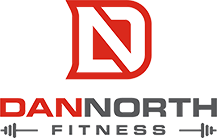1. Take notes after every session
The other tips here are useful, but this one might just have the biggest immediate impact on your ability to write results-driven programs.
Say Bob feels nagging shoulder pain during overhead presses. You switch him to a landmine press and the pain disappears. Take note of this so you can adjust his program next week.
Or let’s say you’re noticing Susie has been coming in with low energy the past couple of Monday’s. It’s been having a negative impact on her deadlift and she hasn’t been able to add weight to the barbell in a few weeks. Take note. Maybe it’s a good idea to have her lift heavy on Tuesday, when she’s feeling more rested and energized.
2. Smile
It’s amazing what a simple gesture can do for your business.
3. Show up early
A great session starts with you setting the tone before your client gets there.
It’s the small things added up overtime that ultimately make the biggest difference. If that sounds familiar, it’s probably because you say the same thing to your clients. “Get enough sleep, drink water, be consistent.” Nothing complex. Just simple things done savagely well for a long time. The simplest thing you can do is focus on what you can control. And you can control your punctuality.
Want to show your clients you care? Arrive before they do. Take a few minutes to review their program and any notes from their last session, set up the equipment, and get some good music going.
Just remember the old saying: If you’re early, you’re on time. If you’re on time, you’re late.
4. Don’t coach what you don’t know
A lot of trainers think they know more than they do. Or worse, they pretend to know more than they do. When a client asks a question, you might feel like you need to know the answer. Here’s the thing: you don’t.
Rather than making something up on the spot (which won’t help you or your client), say “I don’t know.” But don’t stop there. Say you’ll help them get the answer. You can send them an article or a book related to their question, or refer them to an expert on the subject.
5. Practice what you preach
No one’s perfect, and you shouldn’t try to be. But your clients hired you because you emulate (at least to a certain extent) what they’re trying to achieve.
You’re active and you know how to deadlift. That inspires your clients. What doesn’t inspire them is a trainer who tells people one thing and then does another. Walk the walk.
6. When you say you’ll do something, do it
Help your clients build confidence in their decision to hire you. Become a trainer of your word. If you tell Chris you’ll send his program by Sunday afternoon, send it by Sunday afternoon. Do this consistently for years and you’ll be amazed at where it takes you.
7. Focus more on client retention and less on client acquisition
Too many trainers focus on getting new clients, and neglect the ones they already have.
Think about it this way: no one will want to work with you if you suck at what you do. That’s just the reality of it. If you’re constantly on the hunt for new clients, you won’t have the time to do a great job with your current people. Eventually, you’ll develop a reputation as a bad trainer.
On the other hand, if you focus on doing a really good job with one client, you can get two clients. Then the compound effect starts to take place.
8. Educate your clients (don’t just be a rep counter)
Don’t be replaceable by an app. Do more than count reps. Coach the hell out of the session. Provide value. Give your clients the tools they need to be confident in the gym, with or without you there. Give them the knowledge and skills they need to eventually fire you. That’s how you make the biggest impact on your clients, and ultimately become a great trainer.
9. Anticipate your clients’ needs
John Berardi (co-founder of a little company called Precision Nutrition – you may have heard of ’em) made a post recently about helping clients with their problems. And while many well-intentioned trainers ask their clients what they need help with, the best coaches anticipate what their clients need and deliver it to them without having to ask.
Figure out ways you can provide solutions to your clients’ problems before they have to ask.
10. Hire a (good) trainer
Want to get better at what you do? Hire someone who does the same thing you do, with more experience and successful track record to back it up. Among all of the tips here, this one might have the biggest immediate impact on your overall ability to become a better trainer.
Apply for 1:1 trainer mentorship
Do you want to become a top trainer? I offer a 1:1 mentorship program for trainers looking to build their business and create a bigger impact.
Fill out the form below and apply today.





